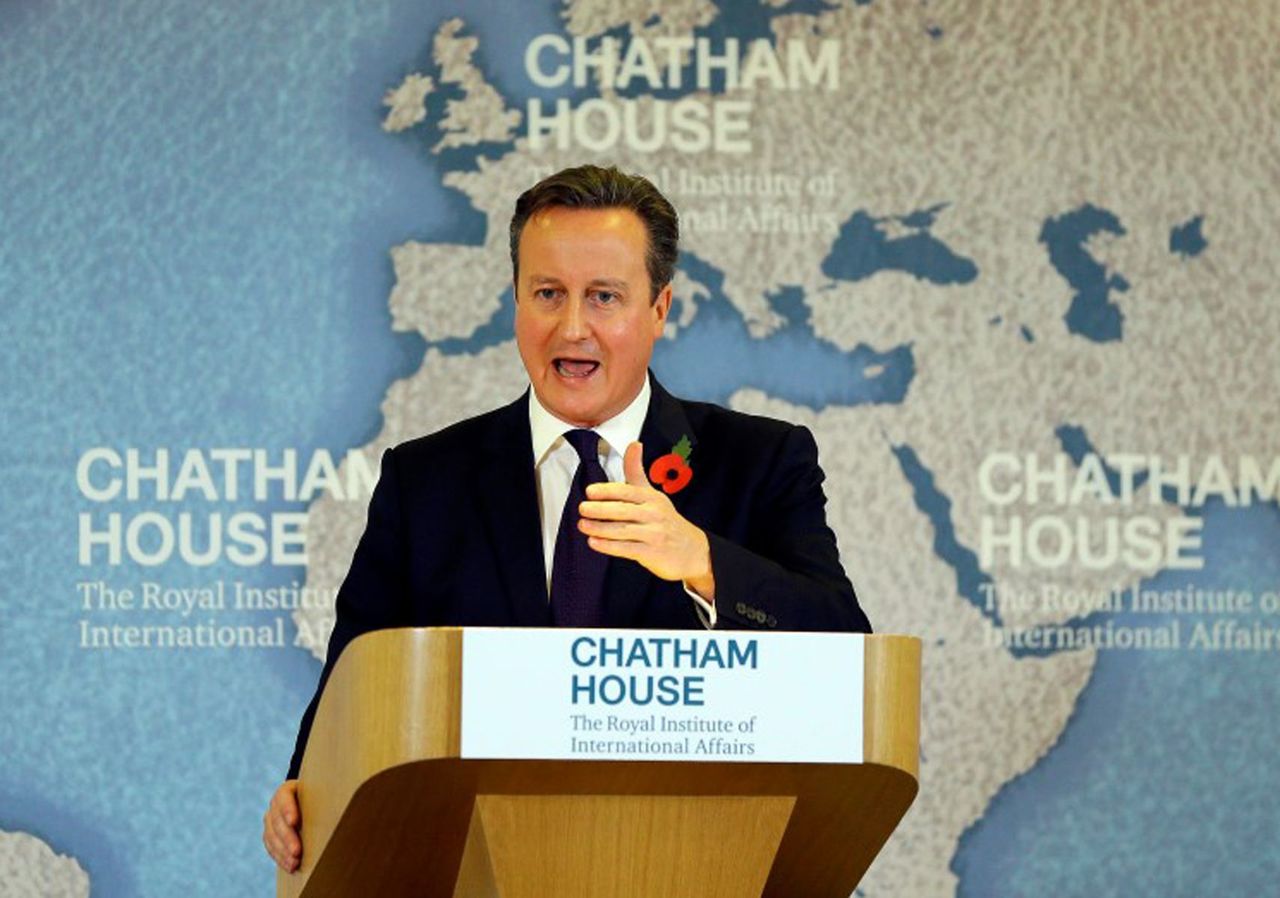
BRUSSELS – Prime Minister David Cameron’s offer to British citizens to hold a referendum on whether to leave the European Union might have seemed like a reasonably safe gamble just a few years ago.
Most people then probably would have voted to stay. That was before the Greek crisis created havoc in the eurozone, and the arrival of hundreds of thousands of refugees caused the EU (although not the United Kingdom) to lose control of some of its borders.
Cameron might actually get other European leaders to agree to his demands for reform, without which he has said he would not campaign to keep his country in the EU. They are not extreme: a guarantee that non-eurozone members gain full access to the single market; less red tape at the EU level; a British exemption from “ever-closer union.” His last demand – fewer benefits for EU migrants – will be the hardest for EU leaders to accept.
Can Breixt be glorious?
Despite this reform push, some British Euroskeptics have criticized Cameron for being too soft. The temptation in Britain simply to abandon what appears to be a sinking ship and go it gloriously alone is growing stronger. This is understandable. The question is whether “Brexit” would be as glorious as its proponents like to imagine.
Unleashed from the rule of Brussels, the sirens of Brexit promise, Britain would once again be a beacon of freedom in the world, respected by China, tied to the United States in the bilateral “special relationship,” and all the while retaining friendly commercial ties with the European continent. Business would boom, the City of London would prosper, and Britons never would be slaves, not of the EU or anyone else.
In fact, things might not work out so well. As Cameron himself stated after a recent visit to Iceland, the Norwegian option of engaging in free trade with the EU as a non-member is far from ideal. Norway, like Switzerland, still has to abide by EU single-market rules, without having any say in formulating them. Norway also pays large amounts of money to the EU budget, and must accept free movement of people (including refugees) across its borders.
As far as the U.S. is concerned, President Barack Obama has already said that he would take Britain more seriously inside the EU than outside it. Similarly, US Trade Representative Michael Froman recently observed that the U.S. would not be interested in negotiating a separate free-trade deal with Britain.
All this, by the way, assumes that post-Brexit Britain would still be Britain. The Scots would almost certainly want to break away from England and rejoin the EU as an independent member, giving further encouragement (as if that were needed) to separatists in Catalonia and other frustrated European regions. England would be left to wave its flag of St. George over Wales and Northern Ireland, a rather sour prospect.
But there are more potential supporters of Brexit: some keen European Unionists who have found the U.K.’s often-obstructive membership increasingly annoying. Good riddance, they might say, once the divorce finally comes through; now the true Europeans can finally unite in peace.
Why Brexit is bad for EU and Britain
This, too, strikes me as misguided. A Brexit would most likely be as damaging to the EU as it would be to Britain itself. Contrary to popular perception, the EU is not ruled by the European Commission in Brussels. National governments still make the most important decisions in the European Council, where leaders wheel and deal to advance their countries’ interests.
Germany, Britain, and France, as the EU’s three major powers, form a crucial balance. Without Britain, the EU becomes a Franco-German enterprise, with Germany very much the dominant partner, and all the smaller member states squeezed between the two. This is not really what anybody wants, not even the Germans, who are reluctant hegemons. Moreover, Britain and Germany are natural allies in balancing the statist tendencies of France.
Britain has in fact had a largely positive impact on the EU. Europe has benefited from Britain’s democratic traditions, its openness to the rest of the world, its impatience with bureaucratic obstruction, and even its skepticism toward abstract utopian schemes. If any city feels like a European capital now, it is not Brussels, Berlin, or even Paris, but London, home to almost a half-million French citizens, as well as millions of other foreigners.
There is one more reason, however, why Brexit would be a disaster for Europe. It is generally agreed that European countries cannot cope alone with the major problems of our time, such as climate change, immigration, the challenges of a globalized economy, and, above all, security.
Since 1945, Pax Americana has papered over Europe’s incapacity to manage its own security. Europeans like to talk about the values of peace and compromise, while US military might takes care of their safety. This has created a degree of dependency that should be redressed, if only to relieve the Americans of their burden and give Europe the political influence to match its economic clout.
For this to be achieved, the EU must establish a common security policy and military force. This will be a long and difficult process. Germany, for obvious reasons, will not take the lead. Only France and Britain have enough military strength to provide a sound basis for European defense. Britain could, in this vital matter, be the savior of Europe. Without it, there is no hope.
Alas, Cameron is singularly ill equipped to make such a positive argument. He leads a party that is increasingly opposed to any European project apart from trade. And he would have to battle a folk memory that has lasted several generations. The last time Britain helped to save Europe, it stood very much, and very proudly, alone.
(C)Project Syndicate
